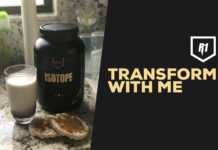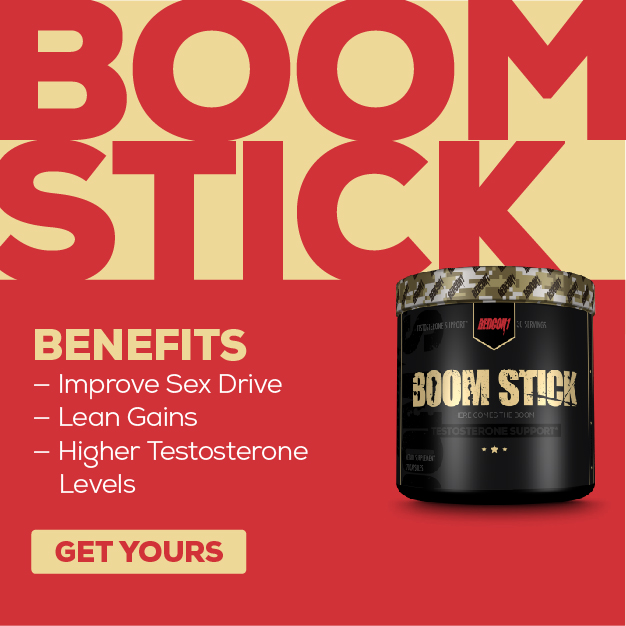
Many people do not give traditional healing systems enough credit in their abilities to heal as well as promote health. Traditional Chinese Medicine as existed and been used for thousands of years, yet people discredit it as being inferior to modern treatments. The fact remains that if something was good enough to be used for thousands of years, there must be some merit to its effects. Besides, did you know that in China, acupuncture is sometimes used as the only form of anesthesia when doing open heart surgery? Surely there is basis for its beneficial properties and in this article we are going to take a closer look at some oriental remedies such as acupuncture, ginseng and kombucha tea for athletes.
Acupuncture: An Alternative View Of The Body’s Energy Systems
You’ve probably heard the terms “acupuncture” and “acupressure” tossed around loosely by friends, or health experts for that matter. And for the most part, you think they are one and the same. While theoretically their end goals are roughly the same – restoring energy flow (also called life energy, Qi or Chi) via stimulation of specific points on the body known as acupoints.
The major difference between the two techniques, however, is the fact that one (acupuncture) uses special needles that are inserted beneath the skin, while the other (acupressure) makes use of external force to stimulate the acupoints.
Which now brings us to the question at hand- how exactly does this benefit you in your strength training journey? Let’s explore how this Ancient Oriental technique can help take your training to the next level.
Stimulating Acupoints Can Boost Energy Levels
Let’s face it; there are days (or weeks, or months) when you don’t feel like doing a damn thing. We’ve all likely experienced such a phase, probably occurring after you’ve run out of preworkout powder (ha!). Luckily, this is one of the issues acupuncture or acupressure may help address, as the Chinese believed that if Chi is blocked from flowing in channels known as meridians, a lack of energy or drive can result.
Likewise, they strongly believed in the concept of Ying and Yang, whereby if they are not in an acceptable balance of sorts, dysfunction results. Yang is associated with “over activity” or stimulatory effects, while Ying, the opposite. So, if you are feeling underwhelmed from getting up off the chair, your Ying characteristics are probably dominant.
Acupuncture Can Promote Detoxification
The way acupuncture can promote detoxification is a bit complex. However, to simplify, the basic theory is that the needles are able to either attract or repel certain ionic compounds, which improve chi flow in meridians. Blockage of chi is believed to be a major contributor to dysfunction as it occurs in the body, so it only makes sense to re-establish normal flow.
Pain Relief
Pain has a much deeper origin that merely at the point felt, as it has been proven to have a strong neuronal connection as well. In fact, pain relief is responsible for the largest collective body of studies conducted on acupressure and acupuncture, for one simple reason- it works.
Researchers have performed brain scans while acupuncture/acupressure was being performed, and have identified changes in cerebral blood flow that indicate pain relief. But pain doesn’t just “magically” stop because of a blood flow pattern in the brain, as in reality many neurotransmitters are involved as well.
Among these neurotransmitters stimulated are the endorphins, feel good chemicals associated with pleasure or joy. One theory also believes that the metal needles used in acupuncture have a way of interrupting the electrical nerve pain impulses, “breaking” the effect of discomfort which would have been propagated.
Numerous studies have been conducted investigating the effect of these techniques on relative pain, with as much as 85% of subjects observing a measurable degree of pain relief. Among the most popular uses for acupuncture in particular is its application for back pain, for which its efficacy has been confirmed.
Acupuncture Can Help Prevent Muscle Atrophy
Muscle atrophy and catabolism are two things no strength athlete want to hear, as it signifies loss of muscle mass, with decreases in strength an accompaniment. There are cases whereby changes to the level of mRNA result in decreased expression for protein synthesis, inhibiting the ability of the body to gain or retain muscle mass. Acupuncture can help to significantly reverse this effect. This particular effect can be extremely beneficial if recovering from injury or a period of inactivity.
Acupuncture Increases Strength Output
This is possibly the most earth shattering reason to add acupuncture to your strength training workout. A study conducted in Germany during 2010 on 33 recreational athletes, compared the effects of acupuncture to incorrectly done “sham” acupuncture (not done using acupoints). In particular, the quadriceps muscle was subjected to the investigation analyzing changes in isometric strength. The result was a noticeable increase in isometric strength. The findings are important since it signals the fact that acupuncture may be used for performance enhancement, as well as rehabilitation aimed at the neuromuscular aspect of recovery.
Both Acupressure And Acupuncture Improve Blood Flow
Blood flow is essential to getting the most out of your workout, as it can determine the rate of protein synthesis, speed at which waste and metabolic byproducts are removed from your blood, or just the sheer feel of “the pump” which is what many strength athletes are after during a workout. Acupressure and acupuncture have been used to stimulate blood flow and enhance the flow of Chi in meridians under the skin.
Which Is Superior?
It would be unfair to rate one as better than the other, as they both possess unique advantages over each other.
For example, acupressure may be a better choice in persons with a phobia of needles, or for more localized cases of pain. Acupressure is relatively easy to learn, and can easily and quickly be picked up by a skilled massage therapist.
Acupuncture, on the other hand, has the distinct advantage of being able to alter electrical neuronal activity, to modulate pain or spasms among other things. Acupuncture, in contrast to acupressure, requires skill to properly locate and puncture acupoints, as it is not merely poking the body with needles.
A mix of both techniques may yield best results for strength athletes, as they can synergistically be used to improve performance, relieve pain and more.
Concluding Notes on Acupuncture
Acupressure and acupuncture is catching on worldwide- it is no longer just some obscure oriental technique, but a proven medical treatment or adjuvant technique to treat conditions and keep the body operating optimally.
The goal of an effective strength training program should be to make the body more functionally strong, while minimizing the risk of adverse effects. You can offer yourself some degree of insurance by simply incorporating these two techniques as part of a holistic health care regimen.
Ginseng’s Benefits for Athletes
Ginseng refers to a class of adaptogenic herbs from the family Araliacae. As an adaptogen, it is commonly used as a restorative and therapeutic tonic to bring a ‘balancing effect’ on the body. Adaptogens are attributed to an increase in resistance to a broad array of stressors, which include chemical, physical and biological factors. As one of the most researched performance herb, we now know that the main compound in ginseng are the saponins called ginsenosides, which provide the wide range of positive effects ginseng is touted for.
Panax ginseng, also called Chinese or Korean ginseng, has been used in traditional Chinese medicine for centuries as a tonic to improve the central nervous system, enhance sexual function, accelerate metabolism and protect you from stress and fatigue.
Ginseng Improve Performance and Recovery
Thanks to its potent saponins, ginseng earned a legendary status among sports enthusiasts and athletes. Numerous studies have proven that this herb can improve endurance, muscular strength and aerobic capacity.
In a review of herbal sports supplement by Dr. Luke Bucci, published in the American Journal of Clinical Nutrition, it appears supplementation of Panax ginseng may increase aerobic work capacity and muscular strength.
According to Bucci, nearly 75 percent of the studies compiled and reviews confirmed the beneficial effect of Panax ginseng supplementation. For example, in a study done by a team of researchers in Sweden, Panax ginseng improved post-exercise recovery and maximum oxygen uptake. Quadriceps strength increased by 18 percent and pectoral strength increased by 22 percent as per dynamometer.
Similarly, researchers at the University of Chieti, Italy found ginseng supplementation to be beneficial by improving time to exhaustion, total work load, oxygen consumption, ventilation and aerobic capacity.
Other Health Benefits of Ginseng
In addition to improving performance and recovery, ginseng offers many major health benefits. Several studies have proven that ginseng supplementation reduces insulin levels and blood glucose levels. While the exact mechanism of action is still unknown, it may be due to ginseng’s ability to improve insulin sensitivity. It can also be the herb’s ability to delay gastric emptying, meaning it takes a while to break down food. Regardless of its action, these benefits denote that it can reduce the risk of diabetes and help lower cholesterol.
Ginseng has been found to improve cognitive function, alertness and mood. For centuries, ginseng is known to boost men’s sexual performance. It may be because it increases the level of luteinizing hormone, which encourages production of testosterone.
Moreover, ginseng has been proven to boost immunity and help prevent cough and flu. It can also improve general well-being and the quality of life.
Kombucha’s Benefits for Athletes
Kombucha is a fermented drink of black tea and sugar. It is a natural probiotic that is known for its energizing effect and detoxifying action. It contains a colony of yeast and bacteria that are responsible for the fermentation process. After being fermented, it turns carbonated and contains enzymes, vinegar, B-vitamins, probiotics and a high concentration of glucaric, lactic, acetic and gluconic acids.
Kombucha’s for Detoxification and Hormone Balancing
The negative effects of excessive estrogen manifest in nearly everything – from obesity and gynecomastic to erectile dysfunction and prostate cancer. Estrogen in men is a serious matter and if you find it hard to achieve your fitness goals or even just feeling manly, excess estrogen might be the culprit.
For athletes, a balanced hormone profile is even more important as it can give you more edge on the competition. Hormonal balance is necessary to achieve peak fitness.
But honestly, in this modern age, with our food industry and the environment filled with toxins, pollutants, xenoestrogens and endocrine disruptors, can you prevent having excessive estrogen and other hormone-related health issues?
One of the ways our body eliminates toxins is through conjugation – a process where toxins are turned into water soluble substances called glucuronides. After the conjugation, glucuronides pass through the liver, then to the bile and finally to the intestine where they are excreted. But high levels of beta-glucuronide can delay this process. The enzyme works by inhibiting conjugation, separating the conjugate bone and allowing them to be reabsorbed. The toxins and hormones reenter into the body’s circulation.
Further, increase in beta-glucuronide increases the number of estrogen receptors. It means that the estrogen hormones that are supposed to be excreted now bind to more receptors, causing difficulty to lose fat and increase in tissue growth such as Gynecomastia. Estrogen dominance is one of the leading causes of infertility and other health problems in women.
Glucaric acid’s (calcium d-glucarate) detoxifying and even anti-carcinogenic activities are attributed to its capacity to increase glucuronidation and elimination of toxic compounds. During Phase II liver detoxification, steroid hormones, chemical carcinogens and other fat-soluble toxins are bonded with glucuronic acid and excreted through the bile.
Further, Glucaric acid, which is the primary acid in kombuchas, prevent beta-glucuronide from disrupting the process. Glucaric acids’s disruption of beta-glucuronidase let the body get rid of hormones such as estrogen before they can be reabsorbed. In a study, large doses of calcium d-glucarate have been found to lower estrogen levels in mice by 23 percent.
Drinking Kombuchas, a rich dietary source of calcium d-glucarate, provides a safe and effective solution to ensure your body is processing and eliminating these harmful substances on a daily basis. It offers a more natural solution to preventing excessive estrogen and achieving hormonal balance.
i. Acupuncture for chronic low back pain in long-term follow-up: a meta-analysis of 13 randomized controlled trials.[ The American journal of Chinese medicine.2013] PubMed- NCBI. Retrieved from https://www.ncbi.nlm.nih.gov/pubmed/23336503
ii. Acupuncture can improve skeletal muscle atrophy[Federation of American Societies for Experimental Biology (FASEB).2012] Sciencedaily. Retrieved from https://www.sciencedaily.com/releases/2012/04/120423162247.htm
iii. Immediate effects of acupuncture on strength performance: a randomized, controlled crossover trial.[ European journal of applied physiology.2010] PubMed- NCBI. Retrieved from https://www.ncbi.nlm.nih.gov/pubmed/20499248
iv. Bucci, Luke. Selected herbals and human exercise performance. Retrieved from http://ajcn.nutrition.org/content/72/2/624s.full.pdf+html
v. Megna, M. et.al. Effects of Herbal Supplements on the Immune System in Relation to Exercise. Retrieved from http://journals.sagepub.com/doi/pdf/10.1177/03946320120250S107
vi. Ginseng and male reproductive function. School of Biological Sciences; University of Hong Kong. Retrieved from https://www.ncbi.nlm.nih.gov/pmc/articles/PMC3861174/
vii. Walaszek Z, Hanausek-Walaszek M, Minto JP, We bb TE. Dietary glucarate as anti-promoter of 7,12-dimethylbenz[a]anthracene-induced mammary tumorigenesis. Carcinogenesis 1986;7:1463-1466. Retrieved from https://www.ncbi.nlm.nih.gov/pubmed/3091283


















